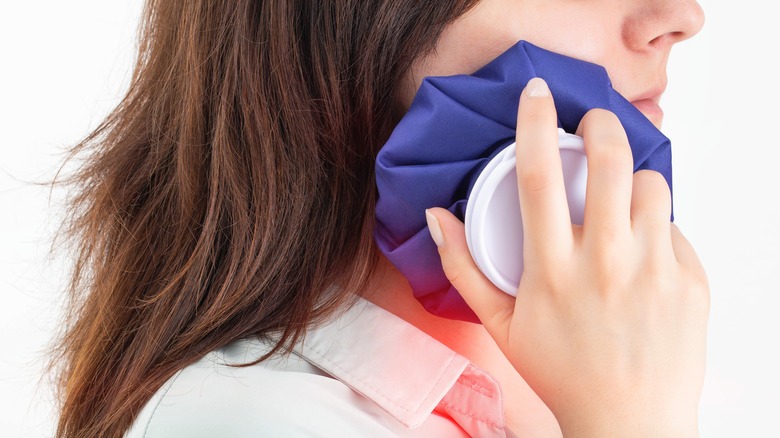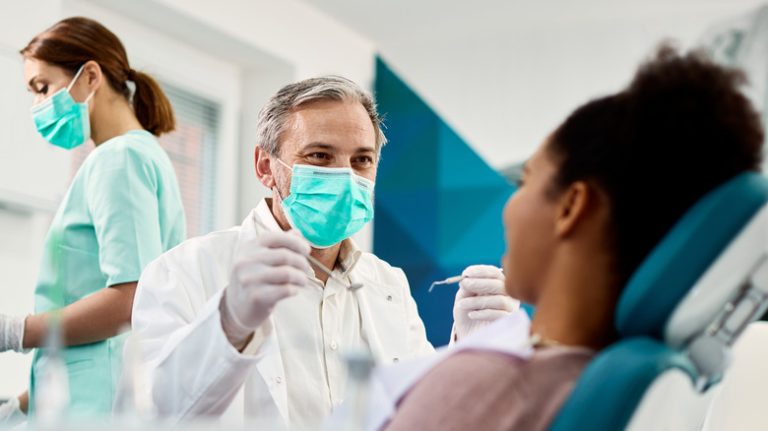A click, snap, or audible cracking noise in the jaw can feel shocking the first time it happens. Healthline explains that some common symptoms associated with jaw cracking, also known as “jaw popping,” include discomfort, tenderness, or difficulty opening your mouth widely (via Meyer Dental Group).
Dr. Gary Lowder, a dentist and professor at the University of Utah School of Dentistry, says that there are different kinds of jaw popping. “One is when they’re almost at their widest opening, like when you yawn,” Lowder states. “This type of popping is more of a subluxation where the lower jaw bone passes over a ridge in the upper jaw bone, and that’s a normal occurrence caused by just a hyperextended lower jaw.”
While yawn-related jaw cracking may not be considered out of the ordinary, Healthline states there are several other conditions that can cause jaw cracking. Some examples include temporomandibular joint disorder (TMJ), arthritis, injury, malocclusion of the teeth, and sleep apnea.
Alternatively, it can be traced to disc displacement in the joint. “This type of popping occurs usually quietly when you’re closing,” explains Lowder. “The disc will slip forward of the lower jaw bone. Then when you go to open again, there will be a louder pop or crack that happens when the disc repositions itself onto the condyle of the lower jaw.”
Sometimes, certain behaviors can further exacerbate jaw popping such as clenching, biting the insides of your cheeks, or grinding your teeth (per Meyer Dental Group).
Jaw cracking relief and prevention

Treatment options for jaw cracking may vary depending on the reason for it. However, there are at-home treatment methods that may help relieve any associated discomfort.
Healthline encourages massaging or gentle stretching of the jaw to either strengthen or relax the area. Additionally, applying a hot or cold compress to the jaw can help reduce discomfort and inflammation. You’ll want to avoid direct contact with your skin, so be sure to cover the compress in a towel before placing it on your face for a period of 10 minutes. Over-the-counter pain relief medications can also be used.
When it comes to day-to-day prevention strategies, try avoiding foods that are particularly chewy or hard. You’ll also want to minimize any physical movements that could over-stretch your jaws such as yelling or singing.
Lastly, Meyer Dental Group suggests being mindful of your posture. Regularly maintaining proper posture can help alleviate neck, face, and jaw pain. While jaw cracking is usually temporary, remember to consult your physician if the sound or pain does not subside or begins to worsen.


